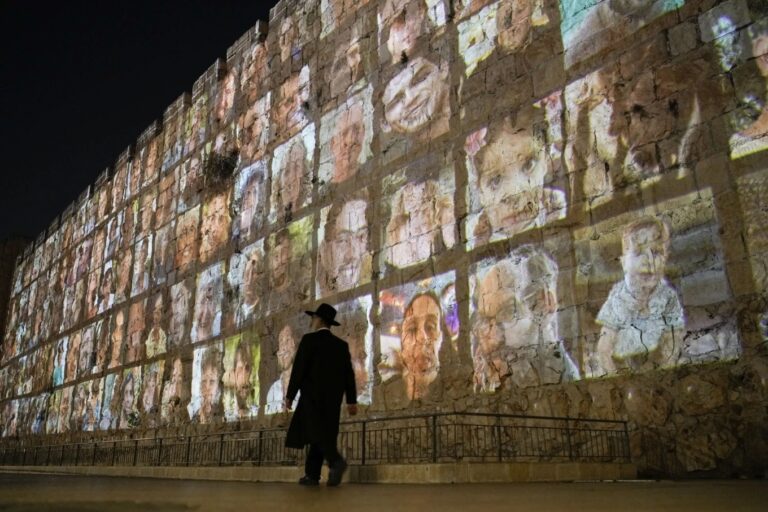 Here’s a personal confession of sorts: while I (“the man of the house”) have basically been regulated to taking out the trash (or, for my UK audience, the “rubbish”) since my wedding, something changed in a big way about seven years ago.
Here’s a personal confession of sorts: while I (“the man of the house”) have basically been regulated to taking out the trash (or, for my UK audience, the “rubbish”) since my wedding, something changed in a big way about seven years ago.
I took out the trash, but it wasn’t a job I particularly liked. Carrying a smelly bag full of a foul smelling mixture was not something I did for kicks; it was something that someone had to do, and the job fell to me. But having the choice, it would have been something I’d gladly have given up…
Enter some words I heard. I don’t remember if it was a shuir I heard on tape, or perhaps I heard it from someone in person, or something I read in a sefer (or a newspaper!) but it was something that transformed my relationship with plastic bags full of soup bones, half eaten yogurt, cereal and milk, and dirty diapers…
Trumas hadeshen, and its companion mitzvah, hotzaas hadeshen.
In the beginning of parshas tzav, the torah talks about the mitzvah of Trumas hadeshen and the activities surrounding the avodah in the Beis Hamikdash. Trumas Hades hen is much more famous then the mitzvah immediately following it in the avodah; Hotza’as hadeshen, or “the removal of the ashes.” Where they were carried outside the camp. (We won’t get into the machlokes between Rashi and the Rambam… this is a business column remember?)
To make a long story short, the concept that I heard was essentially that since a Yiddish house is a miniature version of the Beis Hamikdash, taking out the garbage was our ability to do the mitzvah on Hotza’as hadeshen within our own mini Mikdash.
Since that day, taking out the garbage is no longer done with a krechtz. In fact, sometimes when a child comes with me as I carry out the bag of trash to the large green garbage bin, I will tell them “Come! We are going to do the mitzvah of “Trumas hadeshen!”
What changed? Nothing as far as the act that I am doing. It’s still taking out bags, sometimes grey, sometimes white, and sometimes black, full of slop… and it still drips once in a while. But what has changed is the psychological attitude I take toward this formerly unappealing job; I’ve changed the way the activity is viewed, and now it’s something I do with (well, kind of…) joy and a big smile!
In business, and in life, it’s these kind of changes that we all can use to make our challenges more appealing to deal with. Thinking about the things we do and transforming the way they are looked at makes a tremendous difference in outlook and compliance with what we need to do. In psychology, this is akin to a technique called gamification.
My favorite example of gamification that I explain at seminars is the speed camera lottery, which was tested in the city of Stockholm in Sweden.
In most places in the world, when you drive down the highway at the speed limit and someone zooms past you, it’s quite easy to get a bit upset. That person is going above the limit- and could cause an accident! It’s unfair! It can cause road rage, and many a driver has been known to lose their cool and try to “show the other guy that he can’t be so irresponsible” by speeding up, cutting them off, and then hitting the brakes to teach a lesson.
But in Stockholm, during this experiment, what was done was to gamify the experience; every car driving on the highway had its license plate recorded. If you sped you got a ticket in the mail… but with the twist that that money you paid did not go to the government but rather to the other drivers on that road that drove safely. The top driver on that road that drove within the limits got a check for approximately $3000 worth of Swedish Kroners!
So when a driver on the highway saw another driver speeding, the automatic reaction was “ha! Go go go, ka-ching!! I’m making money!” and smiling cheerfully at the other driver zooms ahead and out of sight, as oppose to getting angry at the other driver’s sheer chutzpah and inability to follow traffic law.
How different would “hard” mitzvos be when the gamification is understood? How much differently can you teach children in chinuch when this psychological reward is properly put in place? How much more business could you do? And how many marriages could be made better by applying this?
Wishing you and ll of Klal Yisrael ah gut gebentsht yohr!!
(Rabbi Issamar Ginzberg – YWN)






5 Responses
and why wasn’t he helping to take out the trash when he lived at home with parents?
Nice article, but you weren’t regulated to taking out the trash (or rubbish, if you will,) you were RELEGATED to taking out the trash, or, to be more precise, the job of taking out the trash was relegated to you.
#1: And you know for a fact he didn’t, how? Did you speak to his parents?
Two days before Rosh Hashannah…
When do I get my check in the mail for careful driving….., I do as a kiddish Hashem and in modeling to others proper safety procedures.
Good article.